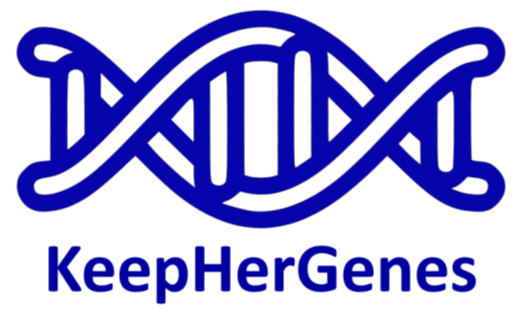Health
ACB-Gel
Production of Platelet Gel from Allogeneic Cord Blood for Patients with Diabetic Foot Ulcers
The diabetic foot is one of the most serious and costly complications of diabetes mellitus, responsible for more than 1,000,000 amputations every year on a global scale, and leads people suffering to reduced independence, physical functioning and social isolation. The medical history, the clinical examination, the psychological profile, the selection of patients according to the dimensions of the diabetic ulcer, the completion of diagnostic tools (scores and questionnaires) as well as the evaluation of imaging findings lead to the diagnosis of focal lesion of the diabetic foot.
The usual treatment of patients with a diabetic foot consists mainly of patches, creams and growth factors. Autologous adult blood platelet autologous gel is a widespread application in recent years to treat skin ulcers mainly in diabetic patients but this source has problems and drawbacks. Human peripheral blood can not be used without potential risks due to allergic factors resulting in several clinical complications. It is noted that candidates for this treatment are mainly elderly patients who experience a decrease in blood-growth factors and are often affected by various pathological conditions that make them difficult to the use of autologous blood.
Umbilical cord blood platelets gel appears to be the best possible solution to the above disadvantages, as it contains high concentrations of growth factors. The preliminary study of the use of allogeneic platelet gel from cord blood during the last two years has led to patient-friendly results. The expected results of the project are the creation of a product of human origin which may replace the conventional treatment for ulcer healing and the reintegration of the individual into everyday life. The ultimate goal is to license and commercialize the product to cover 15% (5,000) of patients with a diabetic foot (total 30,000) in a 5-year plan from the program's completion.
For more information click here.
KEEP-HER-GENES
Development of an innovative embryology tool for mitochondrial/ ctyoplasmic treatment in women undergoing assisted reproduction: spindle transfer
KEEP- HER- GENES proposes the development and prototyping of a new and innovative embryology tool in assisted reproduction aiming at keeping maternal genes in case of cytoplasmic/mitochondrial disorder, up to giving birth to phenotypic and genotypic healthy child with its parent’s DNA. Assisted reproduction (ART) consists of the safest method to help sub- fertile couples become parents, while this treatment is highly demanded all over Europe because of high infertility rates. Recurrent failures of Invitro fertilization (IVF) are often associated to mitochondrial/cytoplamsic deficiencies and or functionality. More specifically mitochondrial disfunction in the cytoplasm and the nucleus seems to be the main cause of poor oocyte quality and contributes to poor embryo development.
The proposal aims to improve success of assisted reproduction confronting the above-mentioned problems by the developing of the maternal spindle transfer technique (MST spindle transfer) to a standardized-validated treatment. MST is accomplished by transferring mother’s DNA at the phase of meiosis (spindle) into donor’s healthy oocyte, after removal of donor’s genetic material. MST thus, is using the mitochondria and “cytoplasmic space” of the donor oocyte to host maternal genetic material. Consequently, after IVF, the embryo will carry mother’s genetic characteristics.
Two highly sklilled SMEs namely, IOL and Diadiaksia (DBC) embrasse a team of internationally re-nown scientists to lead KEEP- HER- GENES meet its goals as follows: (a) give more possibilities to couples be parents, (b) avoid unnecessary ART cycles which might be harmfull for women (c) embryo will carry genetic traits of the mother without any genetic disorder and without any donor’s gene traits, (d) accomplish research that will strengthen IVF (e) results are equally beneficial for both of genders, (f) Greece will be a hub for medical tourism in ART. Finally, the economic impact is summarized as follows: leverage income for the companies by offering the new accredited treatment and by creating new working positions in research, in routine embryology and in the healthcare sector.
For more information click here.
RELEVIUM
Improving quality of life of advanced pancreatic cancer patients through an AI-guided multimodal intervention, combining pain and cachexia management, nutrition, and physical activity (HORIZON-HLTH-2021-DISEASE-04-01)
Pancreatic cancer has the lowest survival rate amongst other cancers and is responsible for 95,000 deaths every year in the EU. Its treatment is usually palliative, aiming at slowing tumour progression and at symptom management. The main hypothesis of RELEVIUM is that quality of life (QoL) of advanced pancreatic cancer patients can be significantly improved by reducing pain and cachexia through highly personalised nutrition, physical activity, and pain management strategies, in addition to chemotherapy treatment. To achieve this, RELEVIUM will empower patients with digital tools that facilitate patient-doctor communication and enable them to self-manage their disease. RELEVIUM will use (i) a multi-sensor smartwatch and an innovative remote ultrasound patch, (ii) AI algorithms for continuous remote monitoring of pain and sarcopenia, as well as for decision support, and (iii) patient and caregiver applications. Combined, these tools will provide a stream of evidence on symptom progression and will enable physicians to apply personalised care plans. RELEVIUM brings together an interdisciplinary team of experts and will also involve patients and their caregivers in an iterative cocreation process. The project will initially conduct a feasibility and data collection study (RELEVIUM-FDC, n=130). The study aims at optimizing patient adherence and compliance, and at collecting data for the development of the intervention. A five-centre randomized clinical trial (RELEVIUM-RCT) will then evaluate the efficacy of the proposed personalised care plans for advanced pancreatic cancer patients (n=132) in terms of their QoL. Several secondary outcomes will be investigated, such as the cost effectiveness of the intervention, its potential in increasing health equity and in relieving the stress burden on the patient families. The study outcomes will result in recommendations for integrating remote monitoring and improving QoL outcomes in palliative care for advanced pancreatic cancer
For more information click here.
iPROLEPSIS
Ppsoriatic arthritis inflammation explained through multi-sourcedata analysis guiding a novel personalised digital care ecosystem (HORIZON-HLTH-2022-STAYHLTH-02-01)
Psoriatic Arthritis (PsA) is a chronic, progressive, inflammatory disease affecting 1-2% of the general population, while manifesting in up to 30% of people with psoriasis (PsO). The transition from health to PsA is currently untraceable; diagnosis of early PsA is challenging even in PsO patients. Untimely diagnosis is common and contributes to early deterioration of quality of life, also increasing the burden of the multiple comorbidities associated with PsA. In this vein, iPROLEPSIS aspires to shed light upon the health-to-PsA transition with a comprehensive multiscale/multifactorial PsA model employing novel trustworthy AI-based analysis of multisource and heterogenous (i.a., in-depth health, environmental, genetic, behavioural) data, digital phenotyping of inflammatory symptoms with emphasis on tracking of motor manifestations using smart devices and wearables, novel optoacoustic imaging-based markers of PsA in the skin and joints, and investigation of the role of mast cells in the PsA transition, to identify key drivers of the disease and support personalized models for PsA risk/progression prediction and monitoring as well as associated inflammation detection and severity assessment. To ultimately advance PsA diagnosis and care, the models will be translated into a digital health ecosystem comprising dependable tools for supporting healthcare professionals in disease screening, monitoring and treatment via quantitative, explainable evidence, and empowering people with/at risk of PsA with tailored insights and preventive interventions based on actionable factors for educated health management. The project will steer its research and development efforts following a trustworthy framework for ethical, lawful, and robust AI, and a user-centered co-creation approach based on constant involvement of key stakeholders during the design, development, and testing of the digital health ecosystem, securing successful integration of the latter in the continuum of care.
